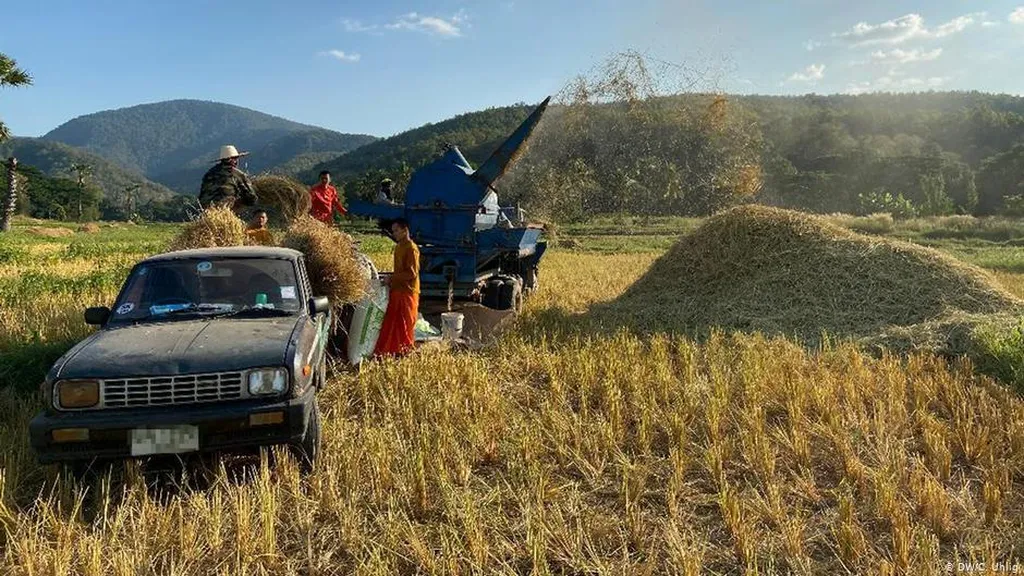In the heart of Thailand’s Hala-Bala Forest, a groundbreaking study led by J. Noolaong from the Faculty of Sciences Technology and Agriculture at Yala Rajabhat University is unlocking new potential for sustainable bioenergy and ruminant feed production. The research, published in the Tropical Animal Science Journal (Karn Tawan Wan Nai), focuses on the isolation and characterization of fungi that produce enzymes capable of breaking down rice straw, a ubiquitous agricultural waste product.
The study identified several fungal species, including Trichoderma reesei, Aspergillus niger, and Chaetomium globosum, which demonstrated significant enzymatic activity. These fungi produce cellulase and xylanase, enzymes crucial for degrading the complex carbohydrates found in lignocellulosic biomass like rice straw. “The efficient degradation of lignocellulosic biomass is essential for sustainable bioenergy production and the enhancement of ruminant feed quality,” Noolaong explained.
The implications for the energy sector are substantial. Rice straw, often left to rot or burned, could be transformed into a valuable resource. By fermenting rice straw with these fungi, the researchers were able to improve its nutritional value, making it a more effective feed for ruminants. This process not only enhances the feed quality but also reduces waste and environmental pollution.
The study’s findings are particularly relevant for regions with abundant agricultural residues. “These findings emphasize the possible use of indigenous fungal isolates for bioconversion of lignocellulosic biomass into value-added products for sustainable agriculture and energy applications,” Noolaong noted. The potential for scaling up this technology could revolutionize waste management and bioenergy production, providing a sustainable solution to agricultural waste.
The research also highlights the importance of local biodiversity in addressing global challenges. By harnessing the power of indigenous fungi, the study opens doors to innovative solutions that are both environmentally friendly and economically viable. As the world seeks sustainable energy sources, this research offers a promising avenue for converting agricultural waste into valuable bioenergy resources.
In the broader context, this study could pave the way for future developments in bioconversion technologies. The use of fungal isolates for degrading lignocellulosic biomass presents a novel approach to waste management and energy production. As the world grapples with the challenges of climate change and resource depletion, such innovations are crucial for building a sustainable future.
The research published in the Tropical Animal Science Journal (Karn Tawan Wan Nai) not only advances our understanding of fungal biotechnology but also underscores the potential of indigenous microorganisms in addressing global agricultural and energy needs. As we move towards a more sustainable future, the insights gained from this study could play a pivotal role in shaping the next generation of bioenergy and feed production technologies.

